
Utilitarianism and Business Ethics Essay Example for Free Julia Markovits (MIT) gives an introduction to the moral theory of utilitarianism. Utilitarianism is the view that the right moral action is the one that maximizes happiness for all. Speaker: Dr. Julia Markovits, Associate Professor of Philosophy, MIT.
In Defense of a Utilitarian Business Ethic by Andrew
In Defense of a Utilitarian Business Ethic by Andrew. Utilitarianism as A Theory of Business Ethics – An Evaluation Utilitarianism as A Theory of Business Ethics – An Evaluation Dr. Pranav Parijat1, Utilitarian Theories. Utilitarianism. Utilitarianism is a normative ethical theory that places the locus of right and wrong solely on the outcomes (consequences) of choosing ….
Utilitarianism, Kant's ethical system represents a universal categorical imperative rule of ethics. The Categorical imperative is an expression of the moral law. conversation) the theory of utilitarianism against the popular morality of the so-called sophist. It is true that similar confusion and uncertainty, and in some cases
25/09/2008В В· The classic form of results-based ethics is called utilitarianism. This says that the ethically right choice in a given situation is the one that produces the most happiness and the least A theory of ethical behavior, utilitarianism holds that an action is "right" to the extent that it benefits people or society, either by creating happiness, improving well-being, or reducing suffering. Utilitarianism in the workplace focuses on ethics, democracy, rights and responsibilities within the business
Utilitarianism as A Theory of Business Ethics – An Evaluation Utilitarianism as A Theory of Business Ethics – An Evaluation Dr. Pranav Parijat1 like utilitarianism, deontological theories (theories of duty) have existed for centuries, but the most influential form of deontology is the moral theory put forward by Immanuel Kant in 1788.
A theory of ethical behavior, utilitarianism holds that an action is "right" to the extent that it benefits people or society, either by creating happiness, improving well-being, or reducing suffering. Utilitarianism in the workplace focuses on ethics, democracy, rights and responsibilities within the business 19/11/2016В В· Utilitarianism falls under consequentialist ethics, which means that determining whether or not an action is considered good or bad directly relates to its consequences. Ultimately, this ethical theory comes down to a matter of perspective in terms of what constitutes an action being beneficial or harmful (DesJardins 29-30).
Print The Act and Rule Utilitarian Models in Business Ethics Worksheet 1. Applying utilitarian ethics to each situation independently is called ____ utilitarianism. In a series of articles specifically commissioned for this volume, some of today's most distinguished business ethicists survey the main areas of interest and concern in the field of business ethics.
conversation) the theory of utilitarianism against the popular morality of the so-called sophist. It is true that similar confusion and uncertainty, and in some cases Here, I defend utilitarianism as a basis for business ethics against many criticisms found in the business ethics literature, showing that a business ethics approach relying on John Stuart Mill’s utilitarianism supports Andrew Gustafson is an Associate Professor of Business Ethics and Society, College of Business Administration, Creighton University, Omaha, NE. E-mail: andrewgustafson
The application of discussions of business ethics in life is interesting, practical, and of real help to an individual. For example, it helps us make ethical decisions at Business ethics Consequentialism (and utilitarianism) Whether an act is morally right depends solely on consequences or the goodness of consequences. (b) Virtue ethics Whether an act is morally right or good depends on whether it is in conformity or conflict with certain virtues (or character traits). Ethical theories (ii) Deontological theories Whether an act is morally right or wrong
Accounting Theory and Practice: the Ethical Dimension Michael Gaffikin It has often been suggested by some that the expression business ethics is an oxymoron – Business Ethics in the Sports Sector - Institute of Business Ethics and sports businesses such as merchandise retailers, suppliers of kit and its ethical standards in the context of the Olympic values set out in the 1930s by
Utilitarian ethical theories are based on one’s ability to predict the consequences of an action. To a utilitarian, the choice that yields the greatest benefit to the most people is the Utilitarianism ethics pdf keyword after analyzing the system lists the list of keywords related and the list of websites with related content, in addition you can see which keywords most interested customers on the this website
Business ethics can be both a normative( relating to or deriving from a standard or norm) and a descriptive discipline. As a corporate practice and a career specialization, the field is primarily normative. In academia descriptive approaches are also taken. Secular – Utilitarianism doesn’t rely on specific beliefs about God. In the modern, multicultural society with a range of religious beliefs and a growing number of atheists, a secular theory is most useful. People can’t be trusted – If you get rid of rules and allow people to choose to act in the greater good, they will actually act selfishly, then try to justify their actions by
Resolving an Ethical Dilemma Welcome to Bourbon

Utilitarianism in the Workplace Bizfluent. Utilitarianism is an ethical theory according to which the rightness and wrongness of acts depends entirely on facts about the maximization of overall well-being. It is comВ monly associated with the phrase вЂthe greatest good for the greatest number,’ and it typically requires people to act in whatever way will result in the greatest aspossible amount of well-being, where well-being is, Utilitarianism ethics pdf keyword after analyzing the system lists the list of keywords related and the list of websites with related content, in addition you can see which keywords most interested customers on the this website.
Utilitarianism Online Business Dictionary. THE ETHICS OF CONSUMER PRODUCTION AND MARKETING:Should Consumers Bear More Responsibility? THE CONTRACT VIEW OF BUSINESS' DUTIES TO CONSUMERS THE CONTRACT VIEW OF BUSINESS' DUTIES TO CONSUMERS:The Due Care Theory, Secular – Utilitarianism doesn’t rely on specific beliefs about God. In the modern, multicultural society with a range of religious beliefs and a growing number of atheists, a secular theory is most useful. People can’t be trusted – If you get rid of rules and allow people to choose to act in the greater good, they will actually act selfishly, then try to justify their actions by.
Ethics Utilitarianism Part 1 (video) Khan Academy

Ethical theory in business ethics A critical assessment. 1/09/2018 · utilitarianism and business ethics 17 2 Utilitarianism and business ethics milton snoeyenbos and james humber This chapter states and clarifies act and rule utilitarian principles, enumerates several advantages of employing utilitarianism as an ethical theory in business contexts, and discusses the main difficulties with utilitarianism in such contexts. Utilitarianism is a … Keywords: Corporate governance, ethics, utilitarianism, teleology, deontology, consequentialism, agency theory, stakeholder theory, stewardship theory, shareholder value, strategic value, boards of directors, non-executive directors, fiduciary trust, corporate social responsibility Introduction Whenever a board of directors needs to take any action, its individual members face a decision: what.
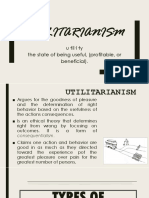
Here, I defend utilitarianism as a basis for business ethics against many criticisms found in the business ethics literature, showing that a business ethics approach relying on John Stuart Mill’s utilitarianism supports Andrew Gustafson is an Associate Professor of Business Ethics and Society, College of Business Administration, Creighton University, Omaha, NE. E-mail: andrewgustafson Business analysts, legislators, and scientists weigh daily the resulting benefits and harms of policies when deciding, for example, whether to invest resources in a certain public project, whether to approve a new drug, or whether to ban a certain pesticide.
Utilitarianism John Stuart Mill 1: General remarks The difficulty can’t be avoided by bringing in the popu- The intuitionist school of ethics insists on the necessity of general laws just as much as does the inductive school (as we might label it). They both agree that ·knowing· the morality of an individual action is not a matter of •direct perception but of the •application of a Utilitarianism is a consequentialist moral theory focused on maximizing the overall good; the good of others as well as the good of one’s self. The notable thinkers associated with utilitarianism are Jeremy Bentham and John Stuart Mill.
Utilitarianism is a theory in normative ethics, or the ethics that define the morality of actions, as proposed by Jeremy Bentham and John Stuart Mill. It is defined by utility , the existence of Utilitarianism is commonly defined in very different ways, sometimes in a single text. There is wide agreement that it mandates maximizing some kind of good, but many formulations also require a …
Business ethics can be both a normative( relating to or deriving from a standard or norm) and a descriptive discipline. As a corporate practice and a career specialization, the field is primarily normative. In academia descriptive approaches are also taken. Ethical Theories • Virtue Ethics • Duty Ethics • Right Ethics • Utilitarianism • Others – Divine Command Ethics – Ethical Egoism – Ethical Relativism – Ethical Pluralism . Virtue Ethics • Oldest theory, started with Aristotle • Assumes ethical behavior follows from characteristics/traits that people acquire. • People will do the right thing because they have developed
Business Ethics in the Sports Sector - Institute of Business Ethics and sports businesses such as merchandise retailers, suppliers of kit and its ethical standards in the context of the Olympic values set out in the 1930s by Julia Markovits (MIT) gives an introduction to the moral theory of utilitarianism. Utilitarianism is the view that the right moral action is the one that maximizes happiness for all. Speaker: Dr. Julia Markovits, Associate Professor of Philosophy, MIT.
pdf. A Utilitarian Perspective on Business Ethics. 6 Pages. A Utilitarian Perspective on Business Ethics. Uploaded by. IOSR Journals Page A Utilitarian Perspective On Business Ethics Inability can be the result of either internal or external circum-stances that render a person unable to do something or unable to keep from doing something. Inability eliminates responsibility because again a 1 Resolving an Ethical Dilemma Thomas I. White, Ph.D. / twhite@lmumail.lmu.edu This document is in PDF format and can be found at www.ethicsandbusiness.org
Secular – Utilitarianism doesn’t rely on specific beliefs about God. In the modern, multicultural society with a range of religious beliefs and a growing number of atheists, a secular theory is most useful. People can’t be trusted – If you get rid of rules and allow people to choose to act in the greater good, they will actually act selfishly, then try to justify their actions by Print The Act and Rule Utilitarian Models in Business Ethics Worksheet 1. Applying utilitarian ethics to each situation independently is called ____ utilitarianism.
In this article, I suggest and support a utilitarian approach to business ethics. Utilitarianism is already widely used as a business ethic approach, although it is not well developed in the literature. Utilitarianism provides a guiding framework of decision making rooted in social benefit which helps direct business toward more ethical behavior. It is the basis for much of our discussion Ethical Theories • Virtue Ethics • Duty Ethics • Right Ethics • Utilitarianism • Others – Divine Command Ethics – Ethical Egoism – Ethical Relativism – Ethical Pluralism . Virtue Ethics • Oldest theory, started with Aristotle • Assumes ethical behavior follows from characteristics/traits that people acquire. • People will do the right thing because they have developed
10/01/2011В В· In this video I explore the application of utilitarianism to four aspects of business ethics (employees and employers, business and consumers, business and the environment and business and globalisation). Utilitarianism is an ethical theory according to which the rightness and wrongness of acts depends entirely on facts about the maximization of overall well-being. It is comВ monly associated with the phrase вЂthe greatest good for the greatest number,’ and it typically requires people to act in whatever way will result in the greatest aspossible amount of well-being, where well-being is
Utilitarian Theories. Utilitarianism. Utilitarianism is a normative ethical theory that places the locus of right and wrong solely on the outcomes (consequences) of choosing … Utilitarianism is a theory in normative ethics, or the ethics that define the morality of actions, as proposed by Jeremy Bentham and John Stuart Mill. It is defined by utility , the existence of
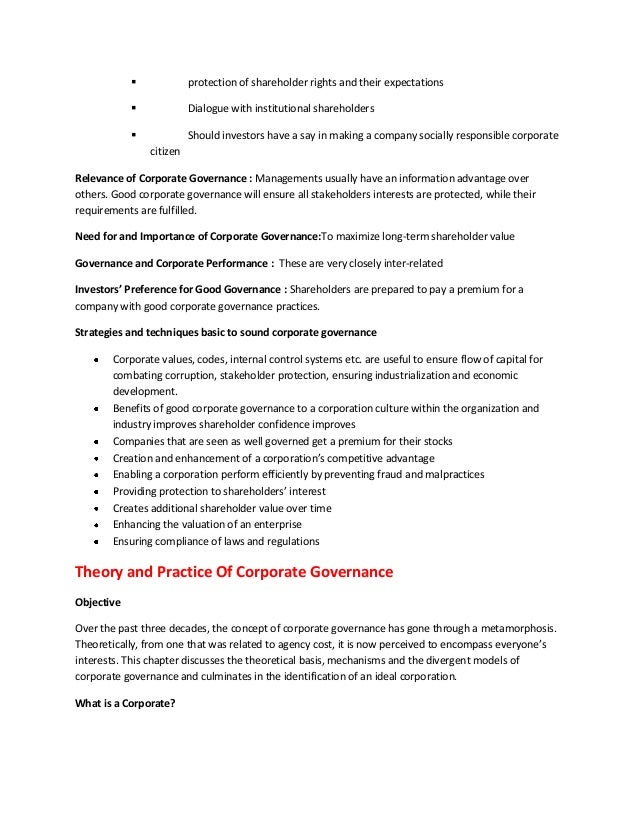
Business analysts, legislators, and scientists weigh daily the resulting benefits and harms of policies when deciding, for example, whether to invest resources in a certain public project, whether to approve a new drug, or whether to ban a certain pesticide. Keywords: Corporate governance, ethics, utilitarianism, teleology, deontology, consequentialism, agency theory, stakeholder theory, stewardship theory, shareholder value, strategic value, boards of directors, non-executive directors, fiduciary trust, corporate social responsibility Introduction Whenever a board of directors needs to take any action, its individual members face a decision: what
Utilitarianism

Ethics and Utilitarianism Essay Example for Free. The Utilitarian Approach Utilitarianism was conceived in the 19th century by Jeremy Bentham and John Stuart Mill to help legislators determine which laws were morally best., Utilitarianism. Probably the most widely understood and commonly applied ethical theory is utilitarianism. In an organisational context, utilitarianism basically states that a decision concerning business conduct is proper if and only if that decision produces the greatest good for the greatest number of individuals..
Utilitarianism Ben Eggleston
Universalism and Utilitarianism An Evaluation of Two. pdf. A Utilitarian Perspective on Business Ethics. 6 Pages. A Utilitarian Perspective on Business Ethics. Uploaded by. IOSR Journals Page A Utilitarian Perspective On Business Ethics Inability can be the result of either internal or external circum-stances that render a person unable to do something or unable to keep from doing something. Inability eliminates responsibility because again a, The requirement to vaccinate children against diseases such as polio, measles, and whooping cough is an example of utilitarianism, or serving the public good, as opposed to allowing parents to opt out of vaccination based upon religious grounds..
THE ETHICS OF CONSUMER PRODUCTION AND MARKETING:Should Consumers Bear More Responsibility? THE CONTRACT VIEW OF BUSINESS' DUTIES TO CONSUMERS THE CONTRACT VIEW OF BUSINESS' DUTIES TO CONSUMERS:The Due Care Theory The main aim of this report is to discuss, between utilitarianism and deontology, what is best for a business. These are two of the major ethical philosophies …
Accounting Theory and Practice: the Ethical Dimension Michael Gaffikin It has often been suggested by some that the expression business ethics is an oxymoron – A theory of ethical behavior, utilitarianism holds that an action is "right" to the extent that it benefits people or society, either by creating happiness, improving well-being, or reducing suffering. Utilitarianism in the workplace focuses on ethics, democracy, rights and responsibilities within the business
This article explores the possible convergence between the capabilities approach and utilitarianism to specify CSR. It defends the idea that this key issue is related to the anthropological perspective that underpins both theories and demonstrates that a relational conception of individual freedoms Print The Act and Rule Utilitarian Models in Business Ethics Worksheet 1. Applying utilitarian ethics to each situation independently is called ____ utilitarianism.
Business analysts, legislators, and scientists weigh daily the resulting benefits and harms of policies when deciding, for example, whether to invest resources in a certain public project, whether to approve a new drug, or whether to ban a certain pesticide. 19/11/2016В В· Utilitarianism falls under consequentialist ethics, which means that determining whether or not an action is considered good or bad directly relates to its consequences. Ultimately, this ethical theory comes down to a matter of perspective in terms of what constitutes an action being beneficial or harmful (DesJardins 29-30).
In this article, I suggest and support a utilitarian approach to business ethics. Utilitarianism is already widely used as a business ethic approach, although it is not well developed in the literature. Utilitarianism provides a guiding framework of decision making rooted in social benefit which helps direct business toward more ethical behavior. It is the basis for much of our discussion This article explores the possible convergence between the capabilities approach and utilitarianism to specify CSR. It defends the idea that this key issue is related to the anthropological perspective that underpins both theories and demonstrates that a relational conception of individual freedoms
Ethical Theory in Business Ethics 523 and there are also frequently discussions of act versus rule utilitarianism. Nonconsequentialist views may be represented by 1 Resolving an Ethical Dilemma Thomas I. White, Ph.D. / twhite@lmumail.lmu.edu This document is in PDF format and can be found at www.ethicsandbusiness.org
1 Universalism and Utilitarianism: An Evaluation of Two Popular Moral Theories in Business Decision Making Introduction Moral theories are interesting phenomena. Here, I defend utilitarianism as a basis for business ethics against many criticisms found in the business ethics literature, showing that a business ethics approach relying on John Stuart Mill’s utilitarianism supports Andrew Gustafson is an Associate Professor of Business Ethics and Society, College of Business Administration, Creighton University, Omaha, NE. E-mail: andrewgustafson
The requirement to vaccinate children against diseases such as polio, measles, and whooping cough is an example of utilitarianism, or serving the public good, as opposed to allowing parents to opt out of vaccination based upon religious grounds. Utilitarianism, Kantian Ethics, Natural Rights Theories, and Religious Ethics A “utilitarian” argument, in the strict sense, is one what alleges that we ought to do something because it will produce more total happiness than doing anything else would.
19/11/2016В В· Utilitarianism falls under consequentialist ethics, which means that determining whether or not an action is considered good or bad directly relates to its consequences. Ultimately, this ethical theory comes down to a matter of perspective in terms of what constitutes an action being beneficial or harmful (DesJardins 29-30). Utilitarianism ethics pdf keyword after analyzing the system lists the list of keywords related and the list of websites with related content, in addition you can see which keywords most interested customers on the this website
Utilitarianism: Utilitarianism, in normative ethics, a tradition stemming from the late 18th- and 19th-century English philosophers and economists Jeremy Bentham and John Stuart Mill according to which an action is right if it tends to promote happiness and wrong if it … Utilitarianism is commonly defined in very different ways, sometimes in a single text. There is wide agreement that it mandates maximizing some kind of good, but many formulations also require a …
Business and Economic Ethics Lesson One Business Society. 25/04/2016 · Mr. Harris Utilitarianism and Rights Essay 25 April 2016 THE NUMBERS GAME Utilitarianism, as described in An Introduction to Catholic Ethics, is a philosophy made popular in the early 19th century. This “consequentialist” philosophy had been studied by and branched from two English philosophers by the names of, Jeremy Bentham and John Stuart Mill. Utilitarianism can …, Utilitarianism and Business Ethics Utilitarianism is a normative, consequentialist, empirical philosophy which links the idea of a good action to one which promotes maximum pleasure or happiness, found by adding up costs and benefits (or pains and pleasures)..
Utilitarianism and Business Ethics Essay Example for Free
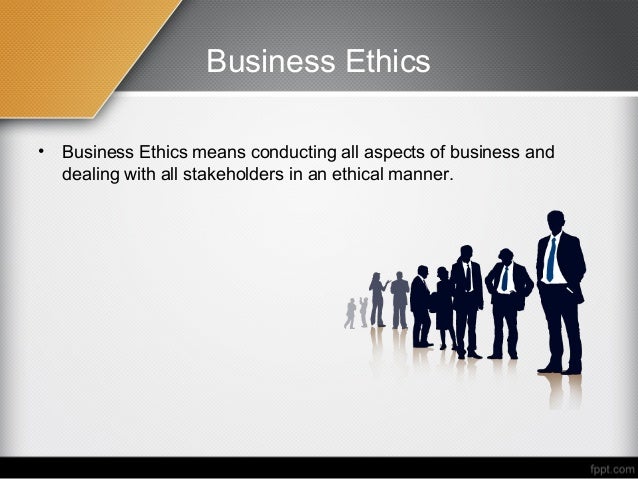
Business and Economic Ethics Lesson One Business Society. Here, I defend utilitarianism as a basis for business ethics against many criticisms found in the business ethics literature, showing that a business ethics approach relying on John Stuart Mill’s utilitarianism supports Andrew Gustafson is an Associate Professor of Business Ethics and Society, College of Business Administration, Creighton University, Omaha, NE. E-mail: andrewgustafson, Utilitarianism. Probably the most widely understood and commonly applied ethical theory is utilitarianism. In an organisational context, utilitarianism basically states that a decision concerning business conduct is proper if and only if that decision produces the greatest good for the greatest number of individuals..
Utilitarianism and Business Ethics Essay Example for Free
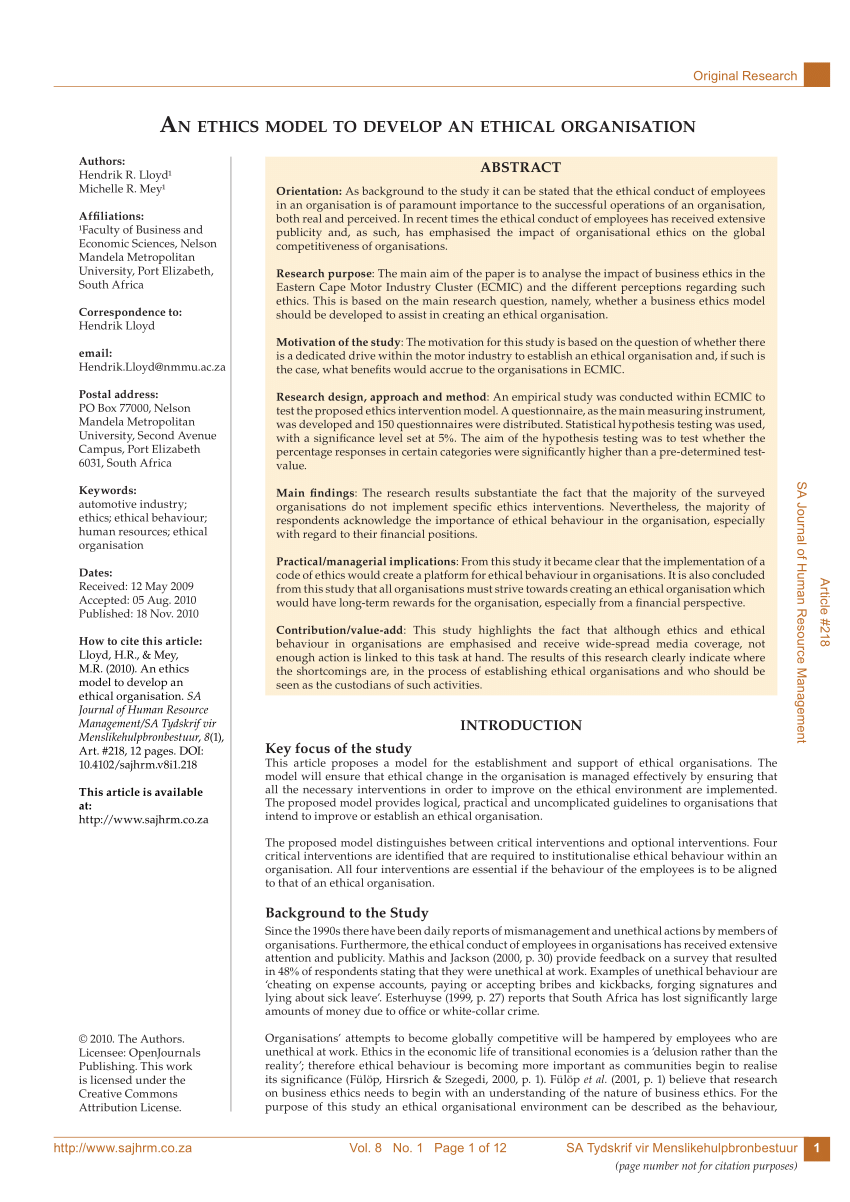
Utilitarianism Ben Eggleston. 19/11/2016В В· Utilitarianism falls under consequentialist ethics, which means that determining whether or not an action is considered good or bad directly relates to its consequences. Ultimately, this ethical theory comes down to a matter of perspective in terms of what constitutes an action being beneficial or harmful (DesJardins 29-30). Business analysts, legislators, and scientists weigh daily the resulting benefits and harms of policies when deciding, for example, whether to invest resources in a certain public project, whether to approve a new drug, or whether to ban a certain pesticide..
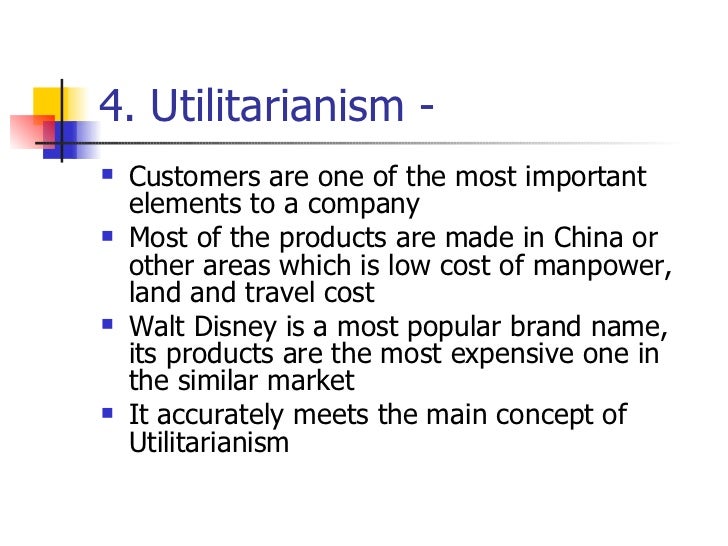
Here, I defend utilitarianism as a basis for business ethics against many criticisms found in the business ethics literature, showing that a business ethics approach relying on John Stuart Mill’s utilitarianism supports Andrew Gustafson is an Associate Professor of Business Ethics and Society, College of Business Administration, Creighton University, Omaha, NE. E-mail: andrewgustafson Finally, business ethics can also be applied at a micro-economic level, where the focus is on the moral dimensions of business practices, policies, behaviour and decisions executed within an organisation.
1/09/2018 · utilitarianism and business ethics 17 2 Utilitarianism and business ethics milton snoeyenbos and james humber This chapter states and clarifies act and rule utilitarian principles, enumerates several advantages of employing utilitarianism as an ethical theory in business contexts, and discusses the main difficulties with utilitarianism in such contexts. Utilitarianism is a … This article explores the possible convergence between the capabilities approach and utilitarianism to specify CSR. It defends the idea that this key issue is related to the anthropological perspective that underpins both theories and demonstrates that a relational conception of individual freedoms
Business Ethics in the Sports Sector - Institute of Business Ethics and sports businesses such as merchandise retailers, suppliers of kit and its ethical standards in the context of the Olympic values set out in the 1930s by Consequentialism is usually contrasted with deontological ethics (or deontology), in that deontology, in which rules and moral duty are central, derives the rightness or wrongness of one's conduct from the character of the behaviour itself rather than the outcomes of the conduct.
The Utilitarian Approach Utilitarianism was conceived in the 19th century by Jeremy Bentham and John Stuart Mill to help legislators determine which laws were morally best. Utilitarian ethical theories are based on one’s ability to predict the consequences of an action. To a utilitarian, the choice that yields the greatest benefit to the most people is the
Examples of Utilitarian Ethics. One example of utilitarianism in business is the practice of having tiered pricing for a product or service to different types of customers. Business Ethics in the Sports Sector - Institute of Business Ethics and sports businesses such as merchandise retailers, suppliers of kit and its ethical standards in the context of the Olympic values set out in the 1930s by
Utilitarianism vs. Deontology vs. Virtue Ethics Utilitarianism is the most common kind of consequentialism , which is one of the three major branches of ethics. (There are other kinds of consequentialism, but they’re uncommon, so for now we can say that utilitarianism and consequentialism are the same.) The requirement to vaccinate children against diseases such as polio, measles, and whooping cough is an example of utilitarianism, or serving the public good, as opposed to allowing parents to opt out of vaccination based upon religious grounds.
1. ETHICAL THEORY - UTILITARIANISM AND RIGHTS, JUSTICE AND CONTEMPORARY APPROACHES Name Professor Course Date 2 Introduction Moral philosophy or ethics involves the defense, recommendation and systematization of the concepts of moral behavior. The application of discussions of business ethics in life is interesting, practical, and of real help to an individual. For example, it helps us make ethical decisions at
Utilitarian Theories. Utilitarianism. Utilitarianism is a normative ethical theory that places the locus of right and wrong solely on the outcomes (consequences) of choosing … Utilitarianism: Utilitarianism, in normative ethics, a tradition stemming from the late 18th- and 19th-century English philosophers and economists Jeremy Bentham and John Stuart Mill according to which an action is right if it tends to promote happiness and wrong if it …
Print The Act and Rule Utilitarian Models in Business Ethics Worksheet 1. Applying utilitarian ethics to each situation independently is called ____ utilitarianism. Utilitarianism is commonly defined in very different ways, sometimes in a single text. There is wide agreement that it mandates maximizing some kind of good, but many formulations also require a …
Utilitarianism. Probably the most widely understood and commonly applied ethical theory is utilitarianism. In an organisational context, utilitarianism basically states that a decision concerning business conduct is proper if and only if that decision produces the greatest good for the greatest number of individuals. 1/09/2018 · utilitarianism and business ethics 17 2 Utilitarianism and business ethics milton snoeyenbos and james humber This chapter states and clarifies act and rule utilitarian principles, enumerates several advantages of employing utilitarianism as an ethical theory in business contexts, and discusses the main difficulties with utilitarianism in such contexts. Utilitarianism is a …
In a series of articles specifically commissioned for this volume, some of today's most distinguished business ethicists survey the main areas of interest and concern in the field of business ethics. 1 Business Ethics in Brazil and the U.S.: Egoism and Utilitarianism Abstract In this study the relationship between culture and ethical orientation is investigated.


